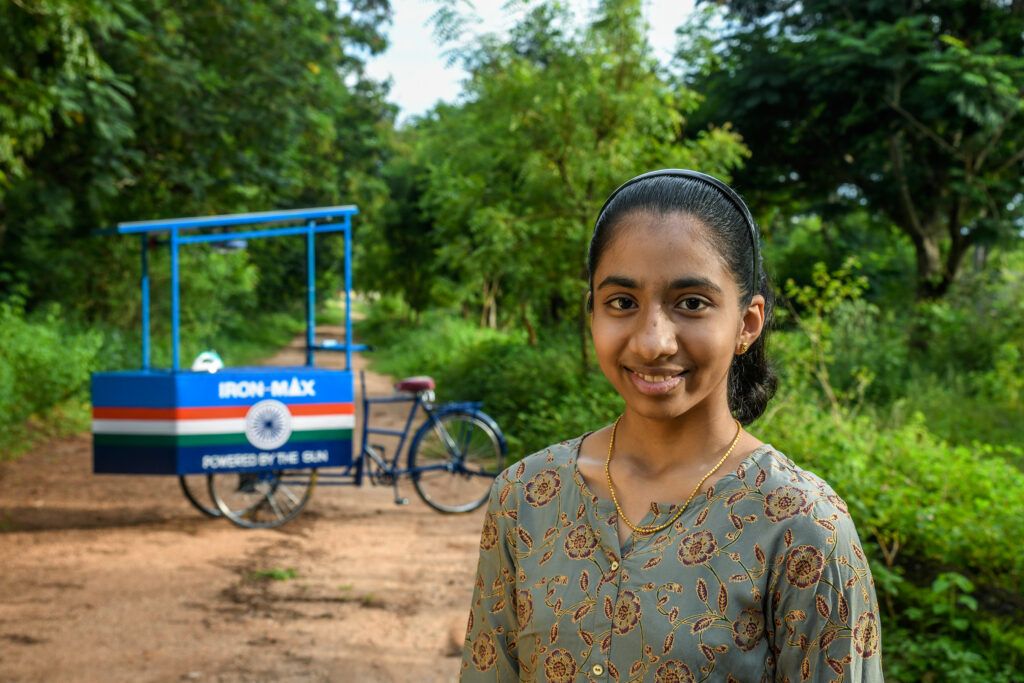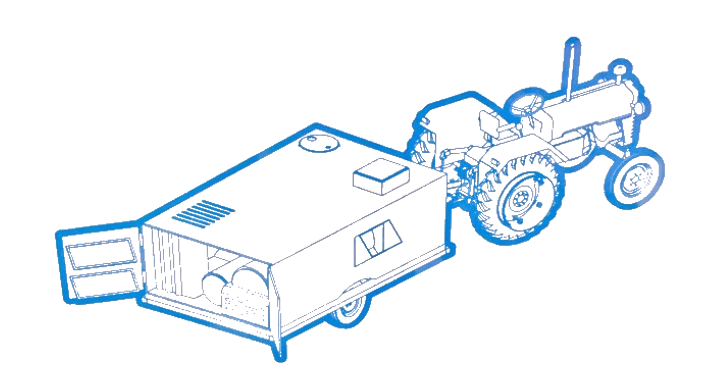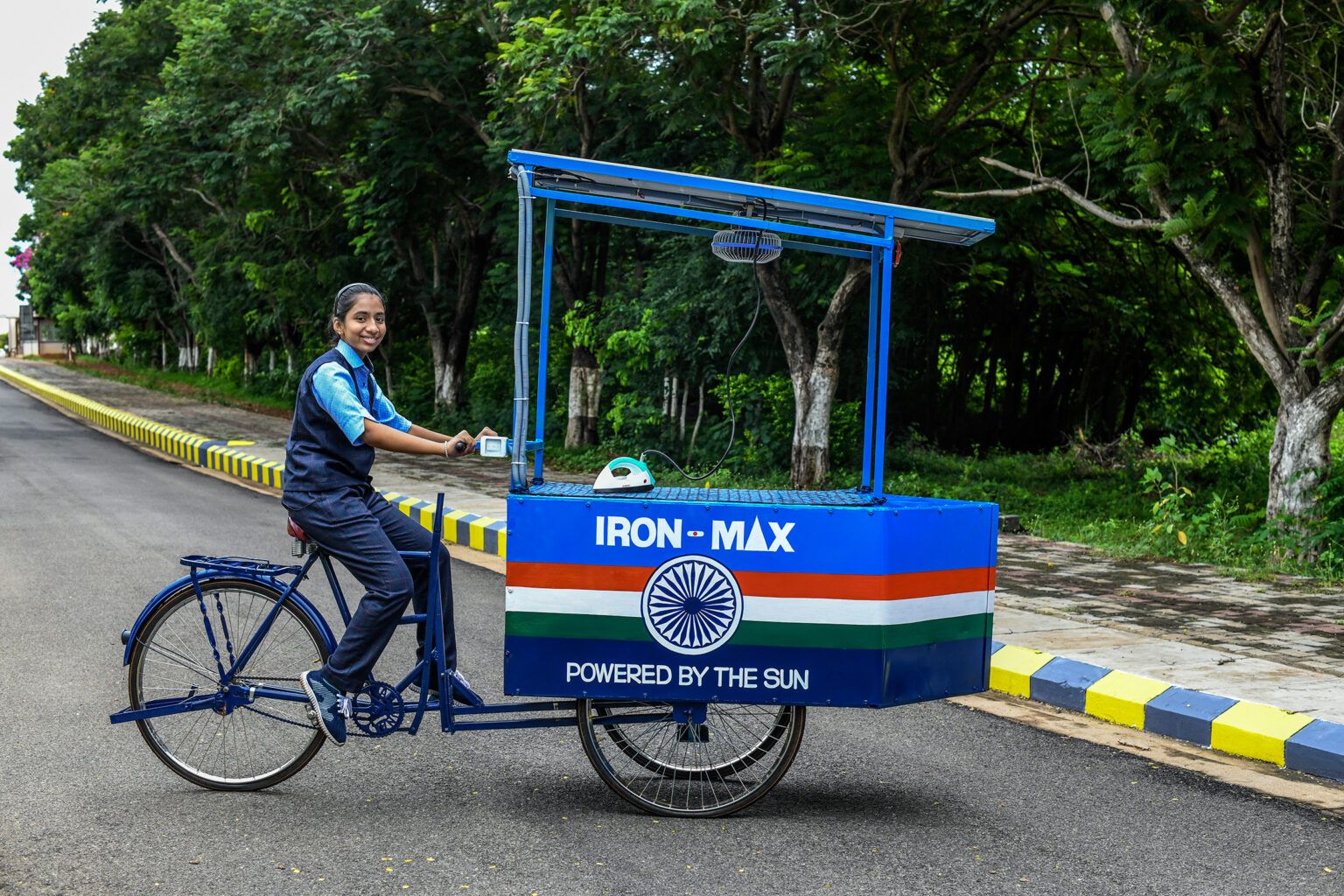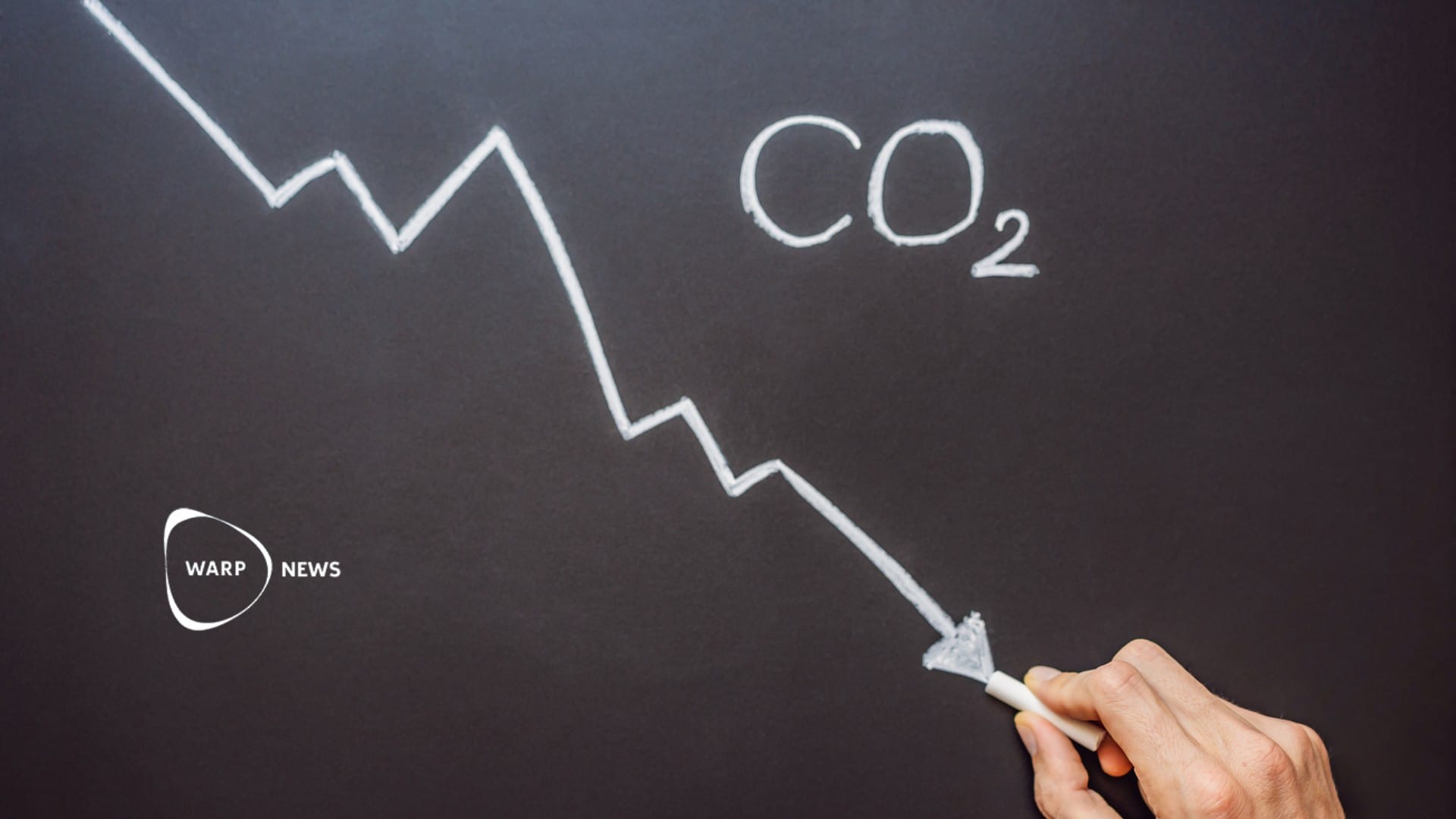
🇮🇳 14 year old finalist in Earthshot Prize for sustainable invention
The Earthshot Prize 2021 awards brilliant Indian inventions that combat high pollution: a tractor tow to make agricultural waste valuable and a solar-powered ironing cart.
Share this story!
If you think your country has air pollution problems, check out this data about India:
- According to a report by the Energy Policy Institute of the University of Chicago (Epic), air pollution in India is so strong to reduce life expectancy by nine years
- The concentration of PM2.5 in the air is on average five times higher than the WHO exposure recommendation
- According to the World Air Quality Report, every year, over 2 million Indians lose their lives from causes related to air pollution
A measure developed by the Indian government was not to intervene in reducing emissions but to build two Smog Towers in New Delhi, the most polluted city on the planet. The towers use a downward air filtration system called "downdraft": air is drawn from the top of the tower, filtered, and then released by mega-fans positioned just above the ground.
This is a very expensive and controversial measure, only capable of addressing the problem at the local level.
But Indian inventiveness in this field doesn't stop there; on the contrary, some innovative systems aim to tackle the core of the problem of reducing pollution with eco-sustainable and easily usable solutions.
Takachar proposes a compact technology to re-evaluate agricultural waste

Data indicate that 17% of Indian emissions come from the incineration of crops. In India, crop residues are generally not exploited by farmers but burned, generating pollution.
Takachar is a company based in Boston and a spin-off of MIT, which has devised a solution to better recover these byproducts with a circular economy logic. It's a compact and inexpensive technology, directly coupling to tractors during operation.
The machine converts crop residues into salable byproducts such as fuel (biodiesel) or fertilizer. The system uses the roasting principle, thermodynamically treating the biomass at 200-300 °c with low oxygen content. In this way, a homogeneous and dry product with a high energy density is obtained, less prone to decompose.
Takachar's real intention was to create a compact system, reducing transport-related emissions to biomass treatment plants.
In this way, an increase in waste value is made, and pollution is reduced by over 95% compared to direct combustion. Moreover, a further business opportunity is offered to farmers: instead of a waste to be disposed of, they will have a salable byproduct.
Led by its Indian founder Vidyut Mohan, Takachar decided to start experimenting in India specifically. On October 17th Prince William awarded Takachar the Earthshot Prize 2021 in the "Clean our Air" section, winning £ 1 million and the Royal Foundation support.
Vinisha Umashankar's eco-friendly ironing cart

In India, ironers' carts roam the streets, using coal to offer ironing services.
A few years ago little Vinisha Umashankar, now 14 years old, saw the smoking clouds emanating from these carts left a deep impression on her. Strengthened by a great passion for science, on returning home from school she began thinking of a solution to the problem.
She thought of a resource that's abundant in India: the sun. So Vinisha started studying solar panels in school books and developed an innovative solution. A team of engineers then helped the girl to create and patent the first ironing cart with solar panels. The cart also has a battery which allows collecting energy even for cloudy days.
It's called Iron-Max: a blue cart, which recharges in 5 hours of sun for 6 hours of use. Not only does it decrease CO2 emissions, but it gives ironers a free and readily available means of producing energy, with an even greater range of motion.
Moreover, excess energy is exploited by mobile phone charging stations to offer extra services such as paid mobile chargers.
This is a simple but very interesting invention to help achieve 13 of the 15 UN Sustainable Development Goals!
Because of her invention, Vinisha's already been referred to as the Indian Greta Thunberg and also became a finalist at the Earthshot Prize 2021 in the "Clean our Air" section.
By becoming a premium supporter, you help in the creation and sharing of fact-based optimistic news all over the world.


